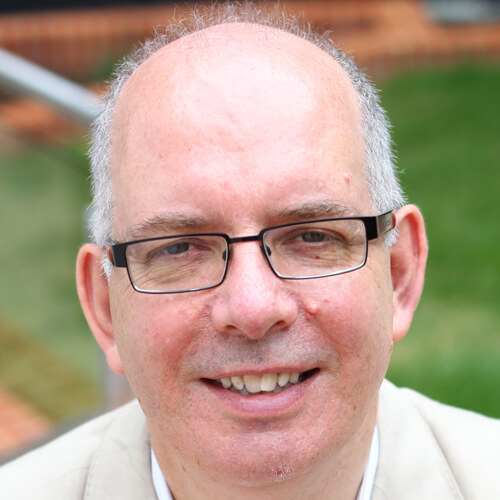Mind Medicine Australia FREE Webinar - Treatment of Mood Disorders: What Does the Future Hold? With Prof Allan H. Young (UK)
Event description
Don’t miss out – Get your tickets early!
Join our upcoming FREE Webinar with Professor Allan H. Young (UK).
Topic: Treatment of Mood Disorders: what does the future hold?
Mood disorders are a common, chronic, severe, complex and costly group of recurrent psychiatric illness that can be devastating for the affected individual and their families. There is a significant clinical need for more effective and better tolerated drug treatments for mood disorders. Although the pathophysiology and neurobiological processes responsible for mood disorders are not fully understood, a greater understanding of the causative underlying mechanisms is gradually emerging. Future advances are expected based on the ability to manipulate and redress the fundamental disease processes and neurobiological dysfunction that underlie these disorders.
In this webinar you will learn:
- Mood and anxiety disorders are common.
- New treatments are emerging including digital approaches, pharmacogenetics, neurostimulation, psychedelics and ketamine.
- High quality research is needed to evaluate the benefits and harms of emerging treatments.
- How you can be part of the new paradigm for the treatment of mood disorders
EVENT DETAILS
- DATE: 11th December 2024
- TIME: 6:55pm (AEDT) for 7:00pm start, finishing at 8:15pm
- DURATION: 75 minutes (incl Q&A)
- LOCATION: Online - a link will be emailed to you with the viewing details
ABOUT THE PRESENTERS
Dr Professor Allan H. Young
Chair of Mood Disorders and Director of the Centre for Affective Disorders in the Department of Psychological Medicine in the Institute of Psychiatry, King’s College London UK

Allan Young is Chair of Mood Disorders and Director of the Centre for Affective Disorders in the Department of Psychological Medicine in the Institute of Psychiatry, Psychology and Neuroscience at King’s College London, where he is also Head of School for Academic Psychiatry. The School of Academic Psychiatry is second in the world rankings for Psychiatry. He is the clinical academic lead in the Psychological Medicine Clinical Academic Group in the South London and Maudsley NHS Trust, and also Consultant Psychiatrist and Head of the Affective Disorders Service.
Professor Young’s research interests focus on the cause and treatments for severe psychiatric illnesses, particularly mood disorders. He has over 700 peer-reviewed publications, including several books about psychopharmacology and affective disorders. He is editor of the Journal of Psychopharmacology and deputy editor of the British Journal of Psychiatry (Open). His H-index is 126 with over 88000 citations of his papers. Professor Young is a Clarivate Highly Cited Researcher: ranking in the top 1% by citations for field and publication year in the Web of Science™ citation index. Professor Young’s current grant funding exceeds £40 million. Past President of the International Society for Affective Disorders and the British Association of Psychopharmacology and Inaugural Chair of the RCPsych Special Committee for Psychopharmacology. He is a trustee of the Drug Safety Research Unit (DSRU), which is internationally respected for its work in Pharmacovigilance, Pharmacoepidemiology, Risk Management and Training Services.
---
MEDICINAL PSYCHEDELIC TREATMENTS
Psychedelic-assisted treatments offer enormous potential in providing a meaningful alternative to current treatments for mental illness. PTSD is a debilitating condition that affects tens of millions of people worldwide, with many more trauma victims diagnosed with comorbid conditions such as depression, anxiety and eating disorders. In recent clinical trials, MDMA has been shown to produce reliable clinical improvements, restoring patient safety and self-agency even for individuals who have suffered with PTSD for many years, and for whom many treatments have failed.
The wave of clinical psychedelic research and regulatory support is rapidly building, with experts forecasting the availability of psychedelic-assisted treatments in the US and EU within the next 2 to 5 years, subject to positive clinical outcomes in large trials that are currently underway.
SUPPORT PSYCHEDELIC RESEARCH AND THERAPY DEVELOPMENT
Your donation to Mind Medicine Australia will help us accelerate the availability and best practice of psychedelic-assisted psychotherapy in Australia. We are a small organisation doing big things – we need your support. Please click here to make a tax-deductible donation.
DISCLAIMER
Mind Medicine Australia does not encourage or facilitate illegal use of psychedelics or plant medicines. MMA focus is focused on clinical and legal use only supported by the emerging science and legislative processes. Mind Medicine Australia reserves the right to record and publish webinars on various social media platforms. You agree that you will not discuss any names, locations or specific details of illegal use of psychedelics both verbally or via any written forms of communication via Mind Medicine Australia social media platforms i.e. Facebook, Instagram or zoom private and public chat forms during the webinar. Breaches of these guidelines may result in not being able to participate in the event. We thank you for support and cooperation on these matters. Mind Medicine Australia is focused specifically on the clinical application of medicinal psilocybin and medicinal MDMA for certain mental illnesses.
Tickets for good, not greed Humanitix dedicates 100% of profits from booking fees to charity


